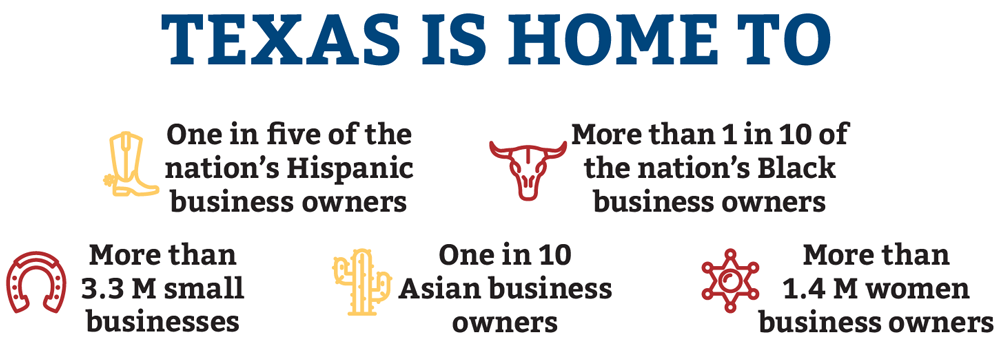The state looks to slash red tape and regulations.
Small businesses are the lifeblood of the Texas economy, playing a crucial role in job creation, innovation and community development. With over 3 million small businesses across the state, they form the backbone of Texas’ economic success, employing nearly half of all working Texans and driving innovation, exports and community vitality. As of 2025, there are approximately 3.2 million small businesses in Texas, representing 99.8% of all businesses in the state. These small enterprises employ about 5 million people, which accounts for 44.3% of all Texas employees.
Ask any small business owner whether they’d prefer to be serving their customers or dealing with government red tape and the answer will be self-evident. Unlike large corporations, smaller business operations don’t employ armies of lawyers and accountants but rather rely on their own limited resources and time to navigate complex regulations and compliance requirements. This often puts them at a disadvantage compared to larger corporations and can divert valuable time and energy away from core business operations and growth initiatives.
It’s for these reasons that in December 2024, Gov. Greg Abbott announced the formation of his Small Business Freedom Council, which recently delivered a slate of recommendations to cut unnecessary regulations, rules and fees that hamper small business formation, operation or growth.
“Texas has long been recognized as one of the best states in the country for business, but sustaining that reputation requires a continuous commitment to removing barriers, streamlining regulations and fostering an environment where small businesses can thrive,” says Adriana Cruz, executive director, Texas Economic Development & & Tourism Office. “The Freedom Council was established to take a comprehensive, data-driven approach to identifying the challenges that small businesses face and proposing practical legislative solutions to enhance Texas’ business climate.”

Source: U.S. Small Business Administration
Business Owners Have Their Say
To formulate its proposals, the Council embarked upon a comprehensive exercise in listening. In coordination with the Office of Small Business Assistance in the Texas Economic Development & Tourism Office, it surveyed nearly 700 business owners and dozens of state agencies, soliciting feedback on the regulatory, financial and operational challenges that small businesses face daily. Key topics included licensing, permitting, taxation, compliance costs, state agency support and regulatory modernization. Respondents were asked to highlight specific challenges they encountered and propose policy changes that would improve the business climate in Texas.
The responses the Council received were frank and far-reaching. A few examples:
“Many small businesses need specialized expertise just to comply with reporting requirements, adding costs and administrative burdens.”
“Many agency websites lack clear guidance, making it hard to determine exact requirements.”
Cruz says the feedback from the survey was invaluable.
“Some of the things that we took away,” she says, “are that regulations and fees can increase costs, create delays and discourage investment and expansion. And then, there are processes that can be modernized to improve efficiency.”
Help on the Way
Released in March, the Council’s report offers numerous recommendations for improvement under headings that include:
- Eliminating unnecessary regulations and fees that increase costs and create delays.
- Reducing tax and financial burdens to encourage investment and expansion.
- Modernizing government processes to improve efficiency and ease compliance.
- Enhancing workforce and hiring flexibility to address labor shortages.
- Increasing small business access to capital and state contracts to fuel growth.
“It’s really a very diverse set of recommendations,” Cruz says, noting that one bit of low-hanging fruit is addressing “duplication of fees or regulations that sort of contradict each other. It’s always very helpful to look at those things and identify ways where we can be as efficient as we can to help support these small businesses.”
The National Federation of Independent Business (NFIB) and the Texas Association of Business (TAB) applauded the release of the Council’s recommendations, which are being considered by the Texas Legislature. The NFIB and TAB co-chaired the Council.
“Texas is the best state in the union to own, operate and grow a business,” said NFIB State Director Jeff Burdett. “Our governor is committed to ensuring we don’t ever take that for granted — and is instead always thinking of ways to promote greater economic opportunity for Texans. I look forward to working with the Governor and the Legislature to implement these recommendations.”

